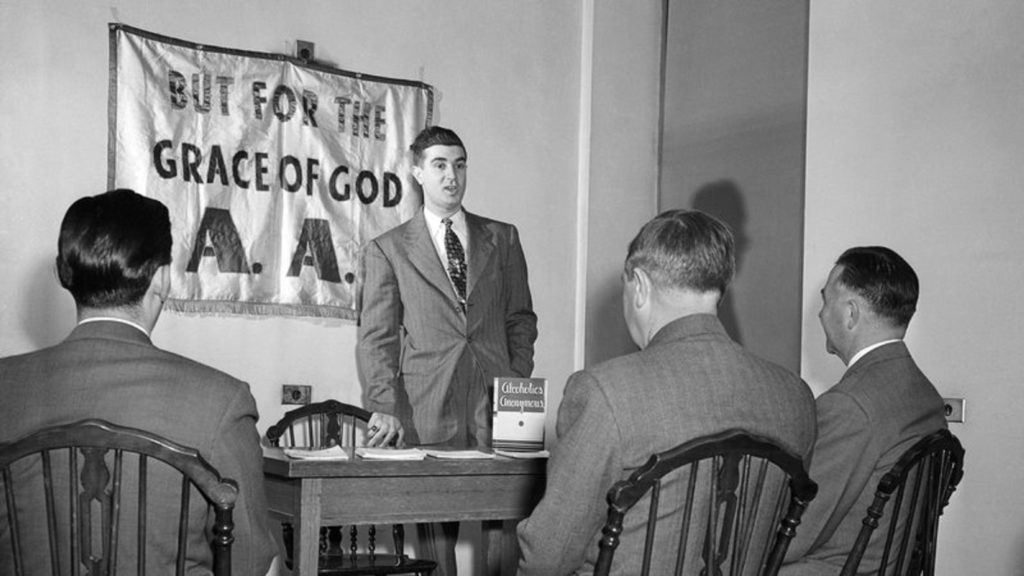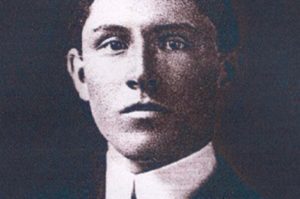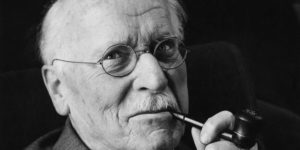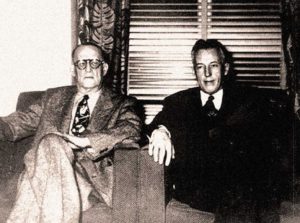A History of Alcoholics Anonymous 1932-1971
HISTORY, 30 Jul 2018
Oliver Clark – TRANSCEND Media Service
A visual and auditory history of AA. Recommended to view Original from a desktop, not a mobile or tablet device.
Alcoholics Anonymous was spouted from the Oxford Group, an organization that became popular in both Europe and the United States in the early 20th Century. The Oxford Group was a non-secular organization and promoted religious and spiritual ideals amongst its members. It was founded by an American Christian missionary called Frank Buchman. He promoted the idea of surrendering one’s life over to God’s plan. This idea is central to the 12-step program adopted by Alcoholics Anonymous.
In 1932, a prominent Rhode Islander, Rowland H, joined the Oxford Group after being recommended by well-known Swiss psychoanalyst Carl Jung. Rowland H sought out Jung’s help because he could not control his drinking.
Jung concluded that Rowland’s alcoholism could not be cured until he experienced a spiritual awakening, also known as a ‘conversion’. Rowland eventually stopped drinking alcohol after reading the book “For Sinners Only” by A.J. Russel. This book tells of the Oxford Group Movement and of its human founder, Dr. F. N. D. Buchman.
“I am strongly convinced that the evil principle prevailing in this world leads the unrecognized spiritual need into perdition, if it is not counteracted either by real religious insight or by the protective wall of human community. An ordinary man, not protected by an action from above and isolated in society cannot resist the power of evil, which is called very aptly the Devil. But the use of such words arouses as many mistakes that one can only keep aloof from them as much as possible.”
— Carl Jung.
In January 1935, Bill W went on a business trip to Akron, Ohio. During this trip, Bill W was tempted to drink alcohol in the hotel’s bar. To prevent this from happening he telephoned a local minister asking if he knew of any alcoholics he could talk to. Bill W learned from Thacher that cravings could be controlled by conversing with somebody who also experienced cravings.
Norman Sheppard directed him to a local Oxford Group member named Henrietta Seiberling, whose group attempted to help a local alcoholic, Dr. Bob Smith (Dr. Bob) but without success.
Dr Bob, a physician, was highly impressed with Bill W’s knowledge of alcoholism. Bill W explained to Dr. Bob what he had learned from Dr. William D. Silkworth at Towns Hospital that alcoholism is a mental obsession and an allergy that makes drinking inevitable.
Bill W shared that the only way he was able to stay sober was through having had a spiritual experience. Dr. Bob was familiar with the tenets of the Oxford Group and upon hearing Bill W’s experience, began to pursue the spiritual remedy for his malady.
To read the whole report please Go to Original – rehab4addiction.co.uk
DISCLAIMER: The statements, views and opinions expressed in pieces republished here are solely those of the authors and do not necessarily represent those of TMS. In accordance with title 17 U.S.C. section 107, this material is distributed without profit to those who have expressed a prior interest in receiving the included information for research and educational purposes. TMS has no affiliation whatsoever with the originator of this article nor is TMS endorsed or sponsored by the originator. “GO TO ORIGINAL” links are provided as a convenience to our readers and allow for verification of authenticity. However, as originating pages are often updated by their originating host sites, the versions posted may not match the versions our readers view when clicking the “GO TO ORIGINAL” links. This site contains copyrighted material the use of which has not always been specifically authorized by the copyright owner. We are making such material available in our efforts to advance understanding of environmental, political, human rights, economic, democracy, scientific, and social justice issues, etc. We believe this constitutes a ‘fair use’ of any such copyrighted material as provided for in section 107 of the US Copyright Law. In accordance with Title 17 U.S.C. Section 107, the material on this site is distributed without profit to those who have expressed a prior interest in receiving the included information for research and educational purposes. For more information go to: http://www.law.cornell.edu/uscode/17/107.shtml. If you wish to use copyrighted material from this site for purposes of your own that go beyond ‘fair use’, you must obtain permission from the copyright owner.



